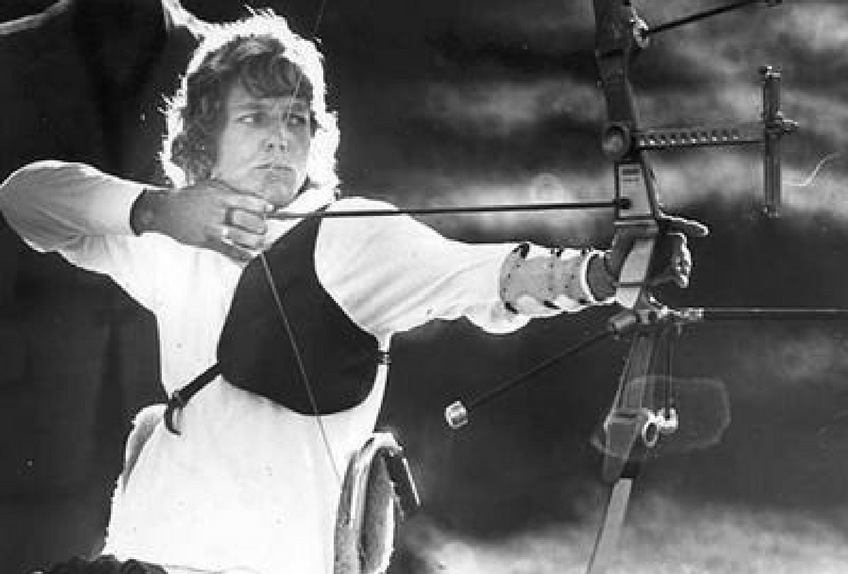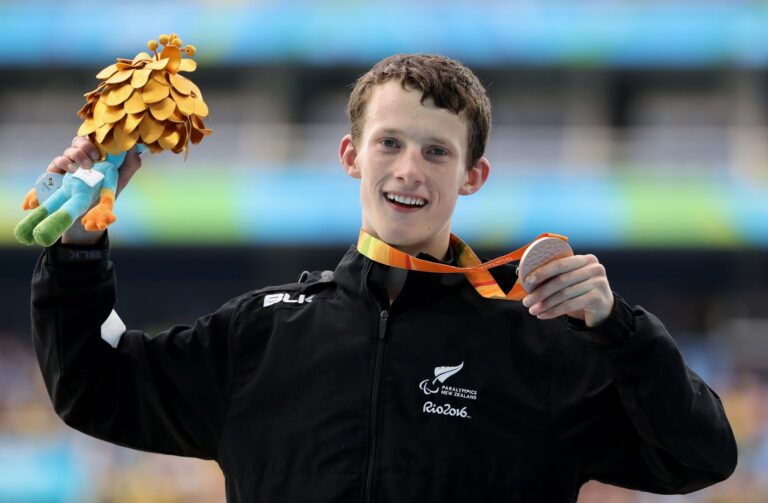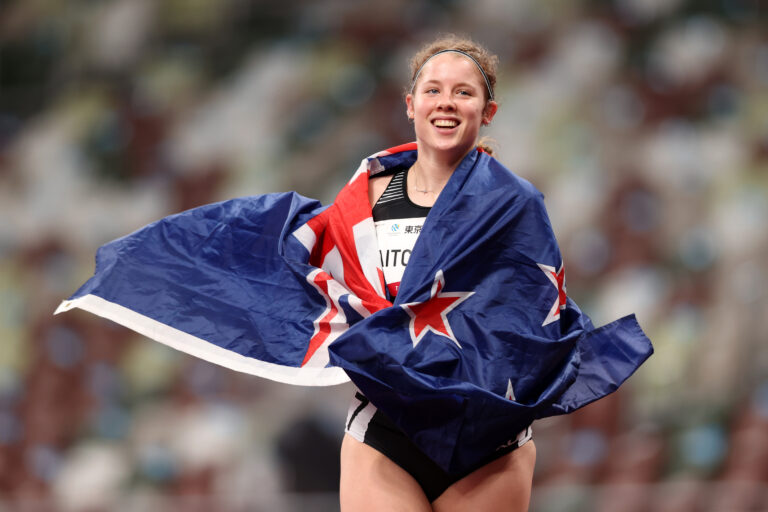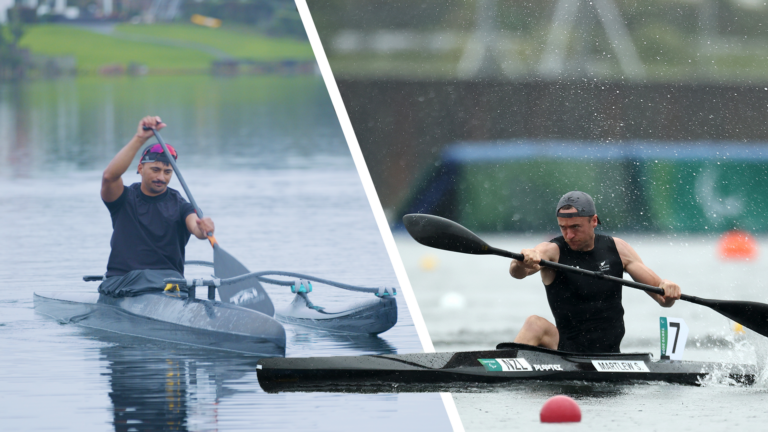The International Paralympic Committee (IPC) has announced five individuals who will be inducted into the Visa Paralympic Hall of Fame during the Rio 2016 Paralympic Games.
Athletes Junichi Kawai, Chantal Petitclerc, Franz Nietlispach and the late Neroli Susan Fairhall will be inducted on 9 September, along with coach inductee Martin Morse.
Launched in 2006, by founding partner Visa, the Paralympic Hall of Fame aims to recognise retired athletes and coaches who have a track record of excellent athletic performance, history of fair play and participation in community activities.
With this year’s induction coinciding with the Rio 2016 Paralympic Games, only athletes and coaches involved in summer sports were considered.
“Visa is honoured to recognise the individual achievements of this year’s five inductees into the Visa Paralympic Hall of Fame,“ said Eduardo Coello, Group Executive of Visa Inc. for the Latin America and Caribbean (LAC) region. “Coach Morse, Junichi, Chantal, Franz, and Neroli share Visa’s commitment to acceptance, displaying it in their individual communities and sport throughout their entire lives. We’re excited to honour them as they join other elite athletes in the Hall of Fame.“
Kawai is Japan’s most successful male Para swimmer after amassing 21 medals, including five golds, over six Paralympic Games between 1992 and 2012. Amid his athletic career, Kawai also founded the Paralympians Association of Japan in 2003.
Following Kawai’s retirement from the pool, he was appointed as President of the Japanese Para Swimming Federation. Kawai was also the first blind teacher to work at an able-bodied school in Japan. He is currently a motivational speaker, University lecturer and Vice Chairman of the Tokyo 2020 Athletes’ Commission.
“Being induced into the Hall of Fame means receiving honour with all the people who supported me, and also serve [an honour to serve] as a representative for Japan and Asia,“ Kawai said.
“All six Paralympic Games are unforgettable. But I clearly felt the passion of the Paralympics at my first Games in Barcelona,“ Kawai added. “That experience and feeling of receiving each of my five gold medals are the driving force for me today to keep the Movement going [especially into Tokyo 2020].“
Petitclerc is the most-decorated female track Paralympian, winning 21 medals, 14 being gold. The Canadian made her Paralympic debut at Barcelona 1992, and went on to compete in four further editions. In her last Games at Beijing 2008, Petitclerc closed her athletic career with a statement – she won every track title from 100m through to 1,500m T54, for the second time in a row, breaking world records along the way. She still holds the world record in the 200m T54.
Petitclerc is Team Canada’s Chef de Mission for the Rio 2016 Paralympic Games.
“It is a great honour to be inducted and join this group of amazing athletes,“ Petitclerc said. “Sport was a big part of my life as an athlete, and it was a privilege to achieve my goals as an athlete. To get recognition for this on top, it’s even better.
“I believe in the power of sport to change lives, to make people better, and to empower. Sport has given me so much, I feel it is only fair that I give back to sport the best that I can.“
Switzerland’s multi-talented Nietlispach competed in nine Paralympics between 1976 and 2008, across athletics, handcycling and table tennis, collecting 14 gold medals.
Nieltlispach dominated wheelchair racing, both on the track and in the marathon. At Athens 2004, he claimed his 23rd and final medal, which was a bronze in the handcycle time trial.
The Swiss is currently a motivational speaker, sports marketier and founder of “carbonbike,“ the world’s leading producer of handcycles.
“First of all, I would like to thank you for inducting me into the Visa Hall of Fame,“ Nieltlispach said. “It is a big honour and gives me a great reason to come to Rio and meet all the athletes and friends again. Furthermore, it provides the opportunity to share all the good memories I got since my first Paralympic Games 40 years ago in 1976.
“As I see it, sport is a perfect platform to reintegrate disabled athletes into society. Successful wheelchair athletes are role models.“
The USA’s Morse served as the head coach for the University of Illinois Wheelchair Track and Road Racing Team from 1981-2004, a time that saw his athletes win 52 Paralympic medals.
Twelve years after stepping down as head coach, the University of Illinois continues to produce some of the top wheelchair racers, many who are competing in Rio 2016.
Morse also invented the Harness Wheelchair Racing Glove, a glove to lower the risk of acute and chronic injuries and improve athlete performance. He also developed the “Illinois Para-Backhand Stroke,“ providing a substantive analysis and explanation of wheelchair racing technique.
“This award is the culmination of the work ethic instilled in me by parents, Everett and Eleanor Morse, following an off-road motorcycle accident in 1975 which left me with an incomplete spinal cord injury,“ Morse said. “While completing my rehabilitation at Boston University Medical Centre, I read an article about the wheelchair sports programme at the University of Illinois Urbana-Champaign. I wanted to coach distance runners and wheelchair athletes, however I wanted to approach my coaching from a science background.“
Morse also thanked his mentors Dr. Bradley Hedrick and Dr. Stephen Figoni; working with then-athlete Sharon Hedrick; physical therapists Dr. Anne Hart and Tim Millikan; his wife Karen and his two sons Steven and Sam.
New Zealand’s ever-talented Fairhall will be inducted posthumously. She competed in athletics and archery in her first two Paralympic Games in 1972 and 1980. But it was archery where she excelled the most, taking the gold at Arnhem 1980. Four years later, she became the first athlete with an impairment to compete in the Olympics, finishing 35th at the Los Angeles Olympic Games.
Honing her skills in archery, Fairhall went on to compete at the 1988 and 2000 Paralympics.
She was awarded an Order of the British Empire (MBE) by Queen Elizabeth II and the prestigious New Zealand Olympic Committee Lonsdale Cup in 1982 in recognition of the archery gold medal she won at the Brisbane 1982 Commonwealth Games, where she was also the first athlete with an impairment to compete in those Games.
Fairhall passed away in 2006 at age 61.
“Neroli is still a recognised household name in New Zealand despite her death in 2006,“ said Carol Hicks, Judges Commission at Archery New Zealand and Chairperson at World Archery. “Even perfect strangers, when hearing I’m involved in archery, [I] immediately remember ‘that fantastic lady in the wheelchair’ and her outstanding achievements. Neroli was a very popular motivational speaker and inspired all New Zealander’s. In particular, her achievements have set the foundations for the ever growing number and depth of talented Paralympians and Para athletes in New Zealand today.“
Nominations were received from IPC members and from the general public. A selection committee was appointed to review the nominations and develop a shortlist. The IPC Governing Board then voted who to induct.
Nominees must have participated in a minimum of two Paralympic Games and must have won a number of medals, either directly or, in the case of a coach, through the athlete or team they coached. The nominees must have been inactive in the Paralympic Games at least four years, or not have competed or coached since London 2012.



























